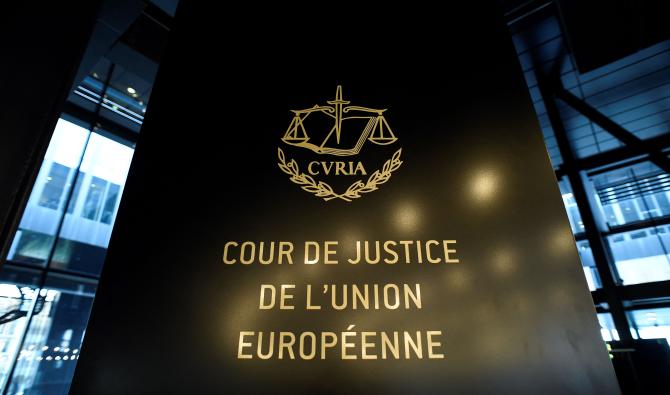
- ARAB NEWS
- 31 Jul 2025

On Oct. 4, 2024, the European Court of Justice recommended the annulment of economic agreements between the EU and Morocco, citing political considerations related to Western Sahara. This decision has reignited the debate about the role of the judiciary in diplomacy, raising questions about the broader implications for European institutional coherence and its standing as a global actor. The Western Sahara issue — concerning a territory that was decolonized and then integrated into Morocco after Spain’s withdrawal in 1975, and has since seen significant development — has long been a manufactured conflict with geopolitical ramifications for the region. The court’s intervention, however, could set a perilous precedent for the future of EU foreign policy.
Traditionally, diplomacy has been the domain of politicians rather than courts. Sovereignty, recognition, and foreign relations are shaped by national interests and ideological ties, not legal interpretations. While international law provides a framework for diplomacy, it is ultimately up to political leaders to navigate national interests. The recent ECJ ruling, however, risks shifting this balance. As the European Council asserted in its Oct. 17, 2024, statement, foreign policy remains the purview of the council, and should be governed by the treaties rather than judicial rulings.
The European Commission, in its immediate response to the ECJ ruling, underscored the principle of “pacta sunt servanda” — the idea that agreements are legally binding on the signatory parties. By invoking this principle, the commission emphasized the need to uphold the integrity of its agreements with Morocco, even as the court attempts to insert itself into what is traditionally a political arena.
Traditionally, diplomacy has been the domain of politicians rather than courts
Lahcen Haddad
The ECJ ruling is not only legally questionable, but also based on flawed assumptions regarding the political and demographic realities in Western Sahara. As Samir Bennis argues in his recent book “The Self-Determination Delusion: How Activists and Journalists Have Hijacked the Western Sahara Case,” the conflict over Western Sahara has been manufactured for political purposes. The Sahrawis in Moroccan-administered Western Sahara freely participate in elections, and are democratically represented at both local and national levels.
In contrast, Sahrawis in Algeria’s Tindouf camps, where they are held as “refugees,” are illegally warehoused, and live under oppressive conditions in violation of the Geneva Convention on Refugees, which guarantees freedom of movement and the right to engage in gainful employment. These individuals are unable to exercise their political or civil rights, further exacerbating their marginalization and lack of representation.
Algeria, which illegally delegates the administration of these camps to the Polisario Front — a fact noted in the 2018 Universal Periodic Review of Human Rights in Algeria by the Geneva-based Human Rights Council — has consistently refused to count or identify the populations held there, despite calls from the UN Security Council and the UNHCR. The Polisario’s authoritarian governance of these camps further undermines its legitimacy as a representative of the Sahrawi population. Yet, the ECJ’s decision ignored these realities, preferring instead to accept the Polisario’s narrative without considering the broader political context, including the fact that the Polisario has violated the UN-brokered ceasefire since 2020, as reported in the most recent UN secretary-general’s report on Western Sahara. This ongoing breach of the ceasefire further undermines the Polisario’s credibility as a legitimate actor in the issue.
One of the most glaring errors in the ECJ ruling concerns the demographics of the Western Sahara conflict. The court claimed that 80 percent of Sahrawis are housed in the Tindouf camps, with only 20 percent living under Moroccan sovereignty. This is far from accurate. As of 2021, around 612,000 Sahrawis live in Moroccan-controlled Western Sahara, while estimates of the population in the Tindouf camps range from 60,000 to 90,000. The World Food Programme provides rations for 135,000 people, but there is substantial evidence, including findings by the European Anti-Fraud Bureau, that part of the humanitarian aid intended for the camps is embezzled. Algeria and the Polisario’s refusal to conduct an official count only deepens suspicions about the true numbers.
In Moroccan-administered Western Sahara, democratic processes are in place, allowing the Sahrawi population to vote and participate in governance. This stands in stark contrast to the situation in the Tindouf camps, where no free elections have ever been held. The Polisario Front lacks legitimacy as a representative body, given that it has never sought the consent of the population it claims to represent. Despite these facts, the ECJ chose to ignore the complexities of representation, undermining its credibility in addressing the Western Sahara issue.
The ECJ ruling is not only legally questionable, but also based on flawed assumptions
Lahcen Haddad
Finally, consultation is possible for 85 percent of Sahrawis living under Moroccan rule, where free elections are held regularly, ensuring legitimate representation and adherence to internationally recognized rule of law. In contrast, in the Tindouf camps on Algerian soil, where free elections are absent and legitimate representation does not exist, meaningful consultation is impossible. Those living in the camps — only about 15 percent of the Sahrawi population — cannot express their political will, and even then, some of these individuals are reportedly of Sahelian, not Sahrawi, origins.
The EU must reconsider the role of its courts in foreign policy matters. The ECJ’s recent ruling on the Morocco-EU agreements is not only based on inaccurate assumptions but also represents an overreach into the domain of diplomacy. By attempting to intervene in a complex political process, the court risks undermining the EU’s credibility as a diplomatic actor. As 20 European countries recognize Moroccan sovereignty over Western Sahara and the EU continues to support UN-led efforts to resolve the conflict, it would be prudent for the ECJ to prioritize judicial matters while allowing diplomacy to remain in the hands of political actors. This approach would help ensure the EU maintains its role as a cohesive and effective player on the global stage.